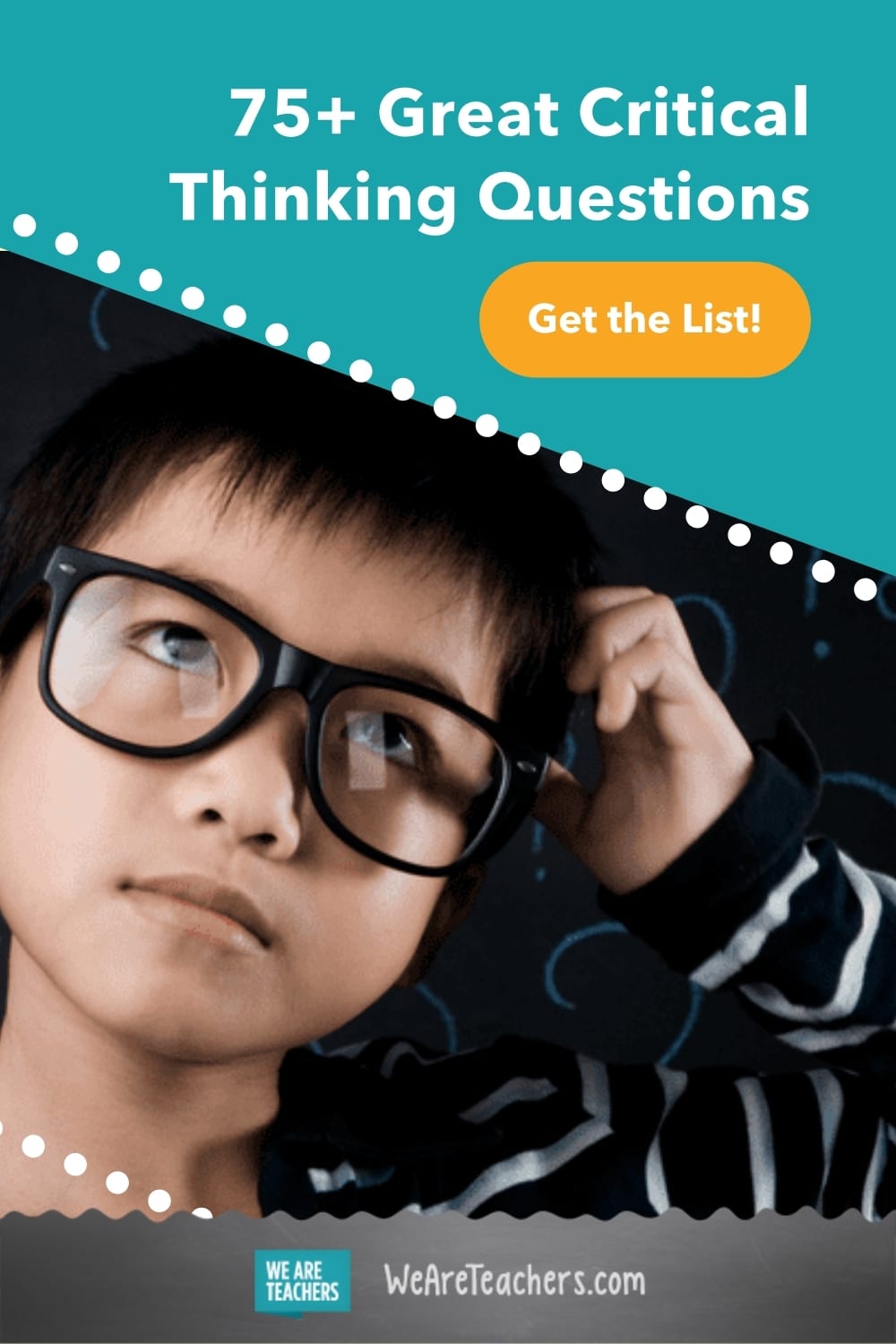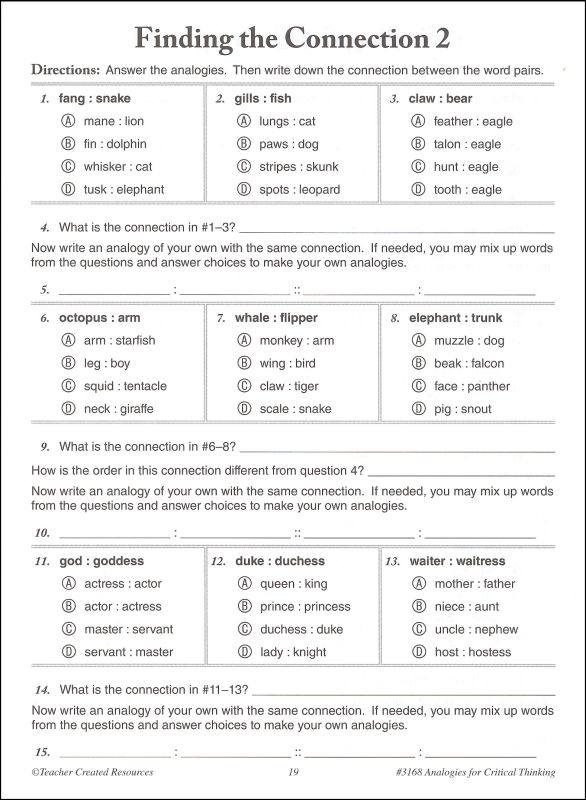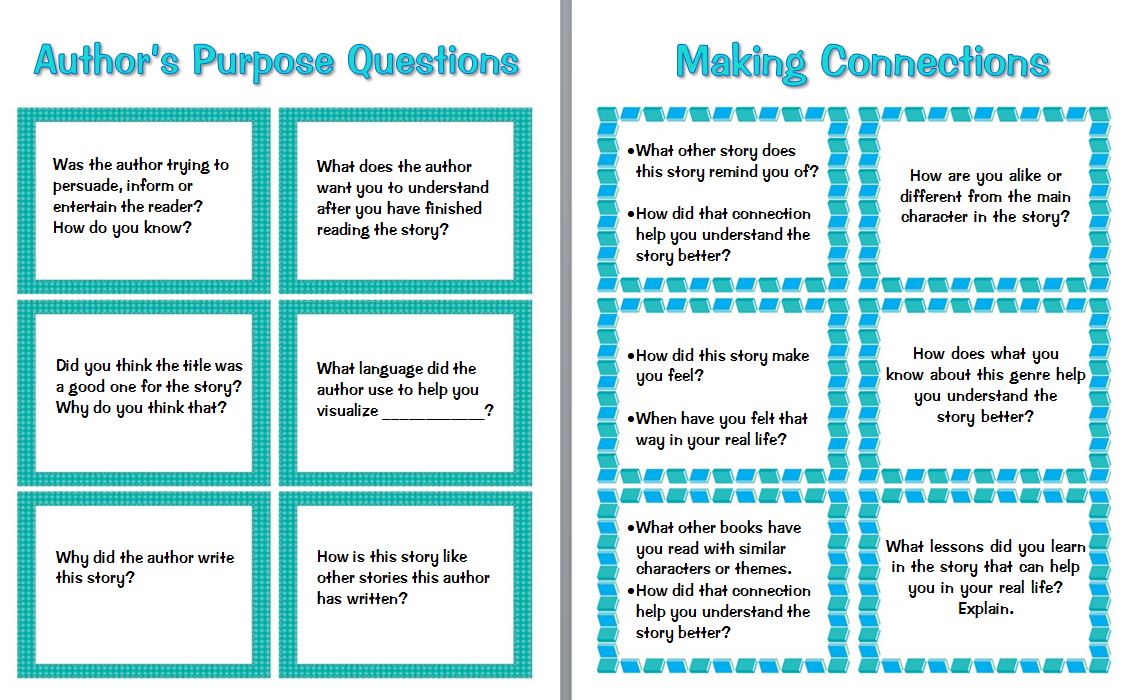
Ready-to-Go Reading Response Questions to Get Your Students Thinking
Choose two or three which make the most sense to you, and start there. Questions about the overall text (a) What is the purpose/aim of this text? How do you know? How might this influence the way it is written? (b) Can you see any justification (direct or implied) for the research decisions? Do the justifications seem reasonable? · To think critically, there must be something to think critically about. With literature, it’s a text that leaves your students puzzling and asking questions about a character, event, symbol, or structure. Predictable or moralistic texts with flat characters don’t generate intriguing questions. When texts are sufficiently complex, the Estimated Reading Time: 3 mins 20 Literature Response Questions What is the most interesting thing you know about the main character of your book? Think about a setting in your book. If you were in the setting, what are some things you might see? Describe an important event from your book and tell why it is important. Who is your favorite character in your book?

Critical Reading Questions
· Methods of Critical Thinking Questions 1. The 5 W’s and the H These are the absolute basics of critical thinking. The Who, What, Where, When, Why, and How are foundational questions that are taught over and over in journalism, investigation, and research. They are the base from which every critical analysis should be created Choose two or three which make the most sense to you, and start there. Questions about the overall text (a) What is the purpose/aim of this text? How do you know? How might this influence the way it is written? (b) Can you see any justification (direct or implied) for the research decisions? Do the justifications seem reasonable? 20 Literature Response Questions What is the most interesting thing you know about the main character of your book? Think about a setting in your book. If you were in the setting, what are some things you might see? Describe an important event from your book and tell why it is important. Who is your favorite character in your book?

The Standard of Questions You Should Ask
Activity 1. The term critical thinking suggests the idea of not readily accepting any given blogger.com terms of school students reading a literary text, critical thinking would involve asking why or how questions about the text: why has the writer used this character as the hero?/why is the story narrated in the first person?/how does the climax resolve the conflict? · We’ve rounded up all of the best critical thinking questions to help you get your students to the next level. Critical Thinking Questions That Start With Who Who caused harm? Who is harmed as a result? Who was the most important character? Who is responsible? Who said it? Who wrote it? Who should have won? Who will benefit?Estimated Reading Time: 3 mins · Methods of Critical Thinking Questions 1. The 5 W’s and the H These are the absolute basics of critical thinking. The Who, What, Where, When, Why, and How are foundational questions that are taught over and over in journalism, investigation, and research. They are the base from which every critical analysis should be created

Social media links
· Methods of Critical Thinking Questions 1. The 5 W’s and the H These are the absolute basics of critical thinking. The Who, What, Where, When, Why, and How are foundational questions that are taught over and over in journalism, investigation, and research. They are the base from which every critical analysis should be created purposeful, reasoned and goal directed’. Halpren (, p. 4) states, ‘Critical thinking is purposeful, reasoned, and goal-directed. It is the kind of thinking involved in solving problems, formulating inferences, calculating likelihoods, and making decisions. Critical thinkers use these skills appropriately, without prompting, and This makes critical thinking questions–well, critical. As Terry Heick explains in What Does Critical Thinking Mean?: “To think critically about something is to claim to first circle its meaning entirely—to walk all the way around it so that you understand it in a way that’s uniquely you. The thinker works with their own thinking tools–schema

Critical Thinking Questions That Start With What
Choose two or three which make the most sense to you, and start there. Questions about the overall text (a) What is the purpose/aim of this text? How do you know? How might this influence the way it is written? (b) Can you see any justification (direct or implied) for the research decisions? Do the justifications seem reasonable? This makes critical thinking questions–well, critical. As Terry Heick explains in What Does Critical Thinking Mean?: “To think critically about something is to claim to first circle its meaning entirely—to walk all the way around it so that you understand it in a way that’s uniquely you. The thinker works with their own thinking tools–schema Questions to be used as a starting point for reading critically. Critical thinking questions (PDF KB) Download
No comments:
Post a Comment